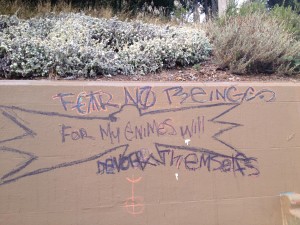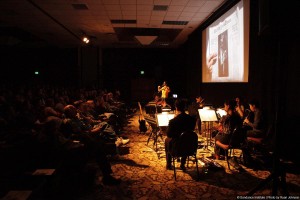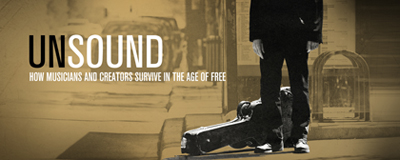By Roger Jackson and Klaus Badelt
Previously: Whatever It Takes
Some directors believe that music is a full 50% of a film. And that there are fundamentally just 3 or 4 “true” creative inputs to the movie — the writer, the director, the composer…perhaps the editor. Whatever the numbers, movie music — that skillful combination of score and song — has the potential to turn a good story into an amazing audience experience. But how do you musically super-charge an indie film when you don’t have the budget to hire a top composer?
I asked Kinonation co-founder — and prolific film score composer — Klaus Badelt.
Klaus has scored over 80 films. His work spans Hollywood blockbusters such as Gladiator, Pirates of the Caribbean, Catwoman, Poseidon, Rescue Dawn, 16 Blocks, The Recruit, K-19. And a ton of US and European indies, including documentaries, shorts and even video games.
Here’s what Klaus has to say about making the very best — and most economical — music choices for a film.
1. Composer as Filmmaker
The director-composer relationship is that of two filmmakers. It’s not about musical genres, or instruments. It’s about driving the story and emphasizing characters and creating emotion. That’s the role of music in film.
2. Script
Think about music (both score and songs) at the script-writing stage. Fundamentally, a filmmaker must decide what character development and story arc she wants from each scene. That is, how do you want the audience to feel about this episode? There should be a single, unambiguous answer. i.e. every shot in every scene must have a clear objective in moving the story forward. So thinking about the music at this stage– and making musical choices — actually helps propel and clarify the script-writing process. Deciding where the music in each scene starts — and where it fades — forces you to think with greater clarity about story shapes & arcs.



 There is a lot of talk in independent film circles about the need to “eventize” the cinematic experience. The thought is that audiences are increasingly satisfied with viewing films and other video material on their private devices whenever their schedule permits and the need to leave the house to go to a separate place to watch is becoming an outdated notion, especially for younger audiences. But making your work an event that can only be experienced in a live setting is something few creators are exploring at the moment. Sure, some filmmakers and distributors are adding live Q&As with the director or cast, sometimes in person and sometimes via Skype; discussion panels with local organizations are often included with documentary screenings; and sometimes live musical performances are included featuring the musicians on the film’s soundtrack, but what about work that can ONLY be enjoyed as a live experience? Work that will never appear on DVD or digital outlets? Not only is there an artistic reason for creating such work, but there can be a business reason as well.
There is a lot of talk in independent film circles about the need to “eventize” the cinematic experience. The thought is that audiences are increasingly satisfied with viewing films and other video material on their private devices whenever their schedule permits and the need to leave the house to go to a separate place to watch is becoming an outdated notion, especially for younger audiences. But making your work an event that can only be experienced in a live setting is something few creators are exploring at the moment. Sure, some filmmakers and distributors are adding live Q&As with the director or cast, sometimes in person and sometimes via Skype; discussion panels with local organizations are often included with documentary screenings; and sometimes live musical performances are included featuring the musicians on the film’s soundtrack, but what about work that can ONLY be enjoyed as a live experience? Work that will never appear on DVD or digital outlets? Not only is there an artistic reason for creating such work, but there can be a business reason as well.

